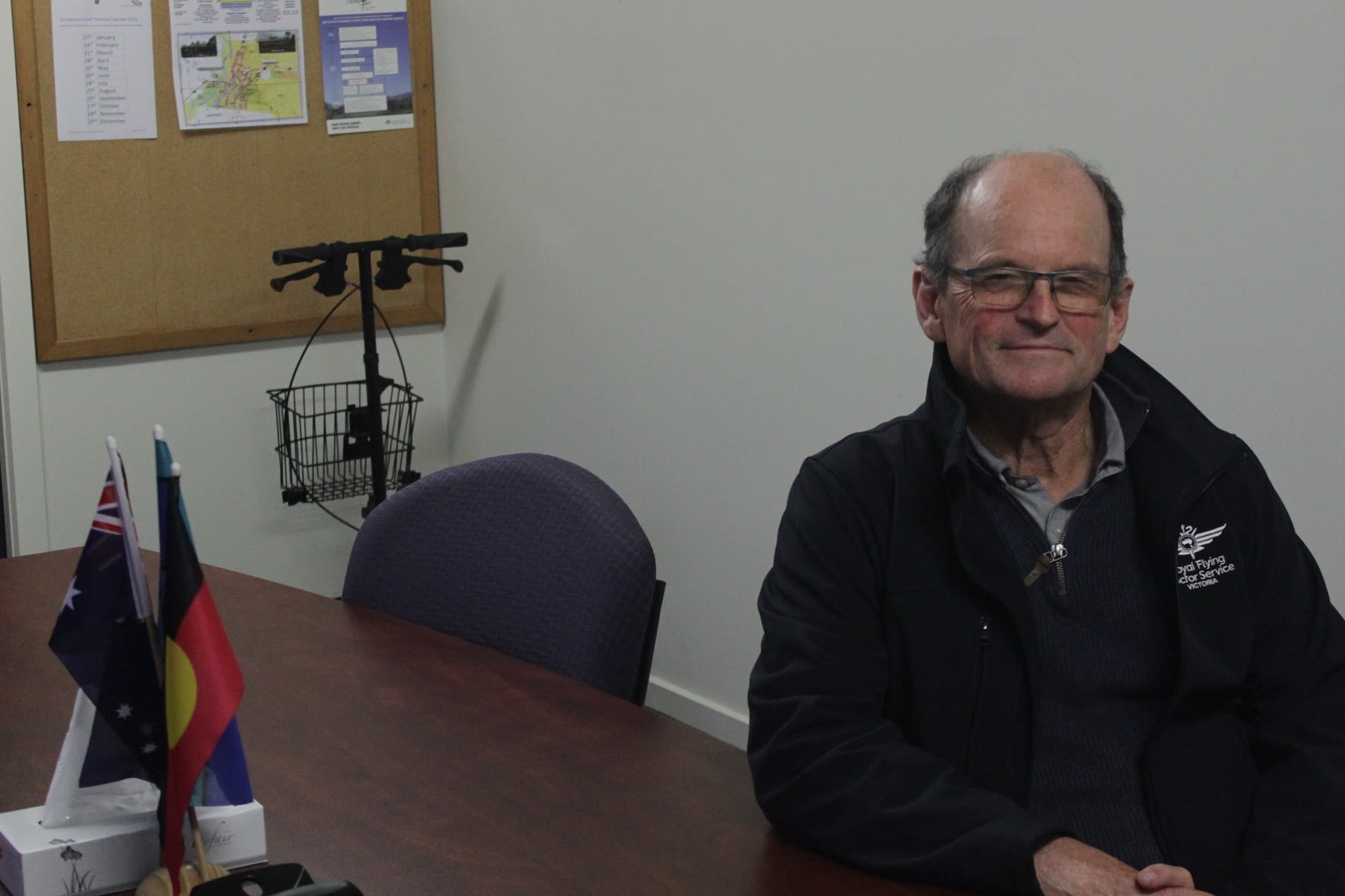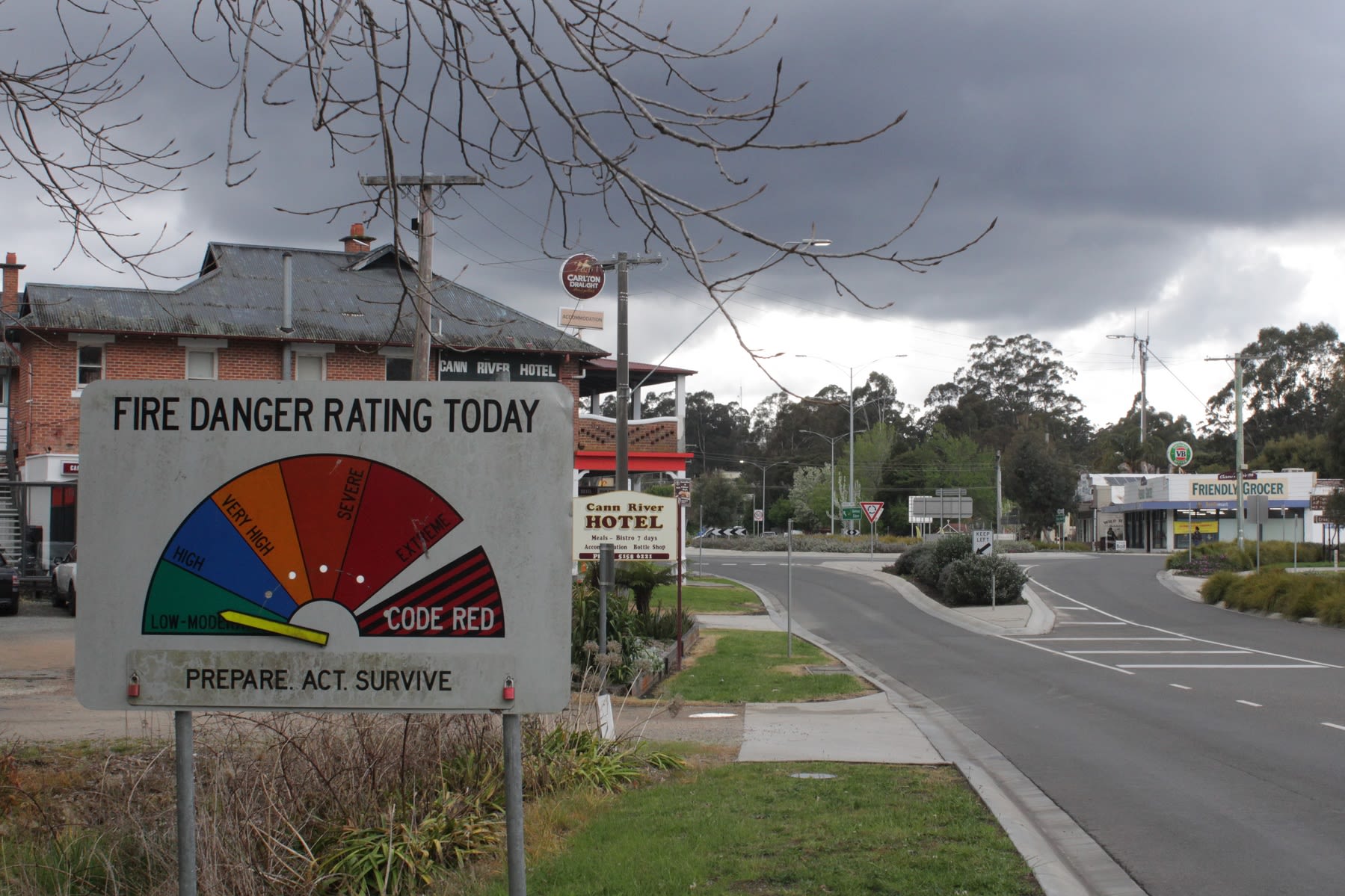Care in the community
As a mental health clinician with Flying Doctor Wellbeing, Peter has been able to serve the needs of rural communities across East Gippsland – both in person and via telehealth.

Despite calling the Orbost district home these days, Peter Quin acknowledges that he doesn’t yet have the honour of calling himself a Gippsland local.
“I moved to the district 25 years ago from Geelong. So, as they say, I'm not really a local,” he says with a laugh.
Regardless of his residency status, Peter feels a deep affinity for the people of Gippsland, and over the past four years, he has worked in the region as a mental health clinician with the Royal Flying Doctor Service (RFDS) Victoria.
In this time, Peter has sadly witnessed a number of immense challenges strike his community – from natural disasters like floods, fires and drought, to COVID-19 and the rising cost of living – and has therefore noticed an increase in the need for wellbeing services.
“[These past few years] have put everybody in a challenging situation,” says Peter. “I see a lot of people who I would say might ordinarily have managed to get by, but then disasters like this come along, which have such a strong, disruptive influence, and cracks start to appear.”

Cann River lies in the most eastern reaches of Gippsland
Cann River lies in the most eastern reaches of Gippsland
Through Flying Doctor Wellbeing, Peter works with a number of farming communities across the wide Gippsland region. By travelling to various communities in the far east, Peter is able to see clients face-to-face when this is their preference, but he notes that many of his clients are comfortable with – and even prefer – telehealth consultations.
“I think most people like the convenience of telehealth, and the evidence is that it's quite as effective as face-to-face,” says Peter. “Most of the time, video can create a good connection between the clinician and the client, and it allows people to feel safe enough to explore some pretty challenging issues in their lives.”
During his time living and working in East Gippsland, Peter has gained a deep understanding of the unique stresses people in this part of Victoria face in terms of their mental health.
“Farmers have to be pretty resilient. More than a lot of other people, their lives are subjected to variables they can't control, and they just have to learn to manage them. But this tends to make them a little bit unaware of their own emotional needs; they’re under a lot of time pressure, and so taking time out for health and wellbeing activities when there are so many other demands just doesn’t feel possible.”

A mural in Cann River celebrating the emergency crews that provided support during the Black Summer bushfires
A mural in Cann River celebrating the emergency crews that provided support during the Black Summer bushfires
Because of these unique pressures, Peter notes that people from farming communities need to be especially vigilant of warning signs that their mental health might be in trouble.
“For instance, are they feeling isolated and not really communicating very well with people? Are they being a bit snappy and feeling a bit resentful?
“Things like sadness and anxiety lead to irritability and tension, and seeing the negative side of things a bit too much,” says Peter, who notes that sadness can lead to issues like sleep problems and sluggishness. “If there's too much anxiety and stress, people can’t be creative, they're not inclined to be sociable and they tend to be more introspective. These things lead to a downward spiral.”
According to Peter, these are all indicators that farming communities need to prioritise their mental health. By allocating time to speak to someone and get some support, he feels people can get a handle on their personal stresses before they get out of hand.
"One particular client of mine took time to review the core parts of his life, things like fitness, diet and having a hobby. He realised that having social connections and spending a little bit of time doing those things he enjoyed each week had a significant impact on his stress levels.
“By spending a bit of time looking at where he could gain some control in his life, that gave him a better sense of balance, and helped him to stop feeling sad all the time due to the destruction from the drought, which he didn't have a lot of control over.
“He was able to start feeling that he had some opportunity to experience happiness and just some joyfulness in his life. And that made a big difference.”
